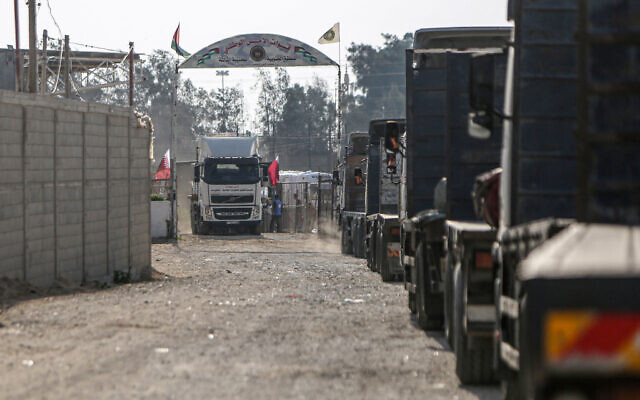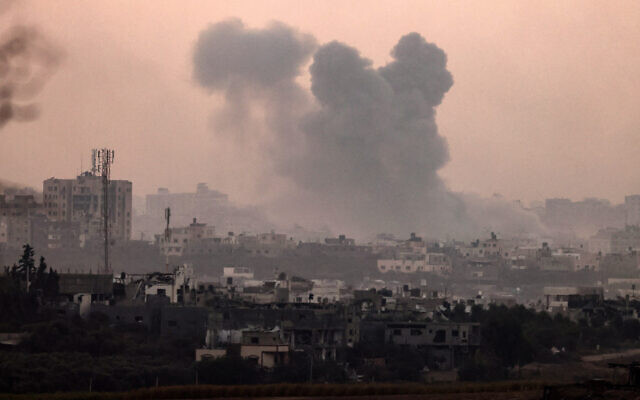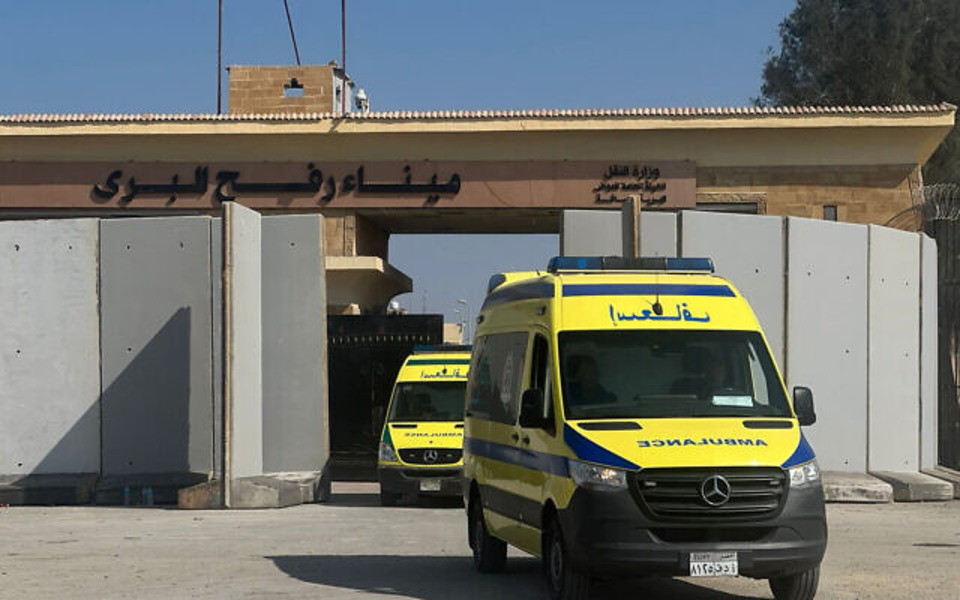Hamas had compiled a list of the seriously wounded that it wanted to evacuate from Gaza for treatment in Egypt, along with thousands of foreign nationals looking to flee the enclave.
The list was then vetted by Egypt and the United States, which found that a third of the names on it were of Hamas fighters, the administration official said, adding that the list was rejected and none of the 76 wounded Palestinians who were ultimately evacuated in ambulances out of Gaza were members of the terror group.
Meanwhile, two senior Israeli officials told The Times of Israel that Israeli inspectors earlier this week uncovered several oxygen concentrators meant to aerate the tunnels operated by terror organizations in Gaza.
“These weren’t for use in the hospitals, but below them. That’s why they were smuggled among boxes of cookies,” one of the senior Israeli officials said, adding that the entire truck in which the oxygen concentrators were found was barred from entering Gaza.
Neither official provided a photo of the oxygen concentrators in question and they did not disclose which organization was responsible for sending the truck.
Since Egypt opened its Rafah crossing into Gaza 11 days ago, several hundred trucks filled with humanitarian aid have been able to enter Gaza following inspections by both Egyptian and Israeli authorities.
The trucks first enter Egypt where they undergo an initial round of inspections. They then are driven into Israel through the Nitzana crossing where they are inspected by Israel’s COGAT military liaison before being sent back to Egypt and driven into Gaza through the Rafah crossing, a second Israeli official told The Times of Israel, saying the format was agreed upon after extensive talks between Israel, Egypt and the United States.

Israel has thus far rejected growing calls to allow in fuel, expressing concerns that Hamas will divert it to power its tunnels. IDF Chief of Staff Herzi Halevi said Thursday that Israel would allow fuel to enter Gaza via the Rafah crossing should it determine that hospitals have run out of fuel.
Shortly after Halevi’s comments, the Prime Minister’s Office issued a terse statement noting only that Prime Minister Benjamin Netanyahu “has not approved the entry of fuel into Gaza.”
Israeli battle plans ‘significantly refined’
The senior Biden administration official also said Friday that Israel “significantly refined” its original military plan for its war against Hamas following talks with the US.
Pressed on whether Washington is having discussions with Israel about the growing numbers of civilian casualties, the senior official insisted that the US is “asking hard questions and constantly asking and ensuring there’s clarity about the objectives [they’re] seeking.”
“They have significantly refined what originally was their plan,” the official said in a phone briefing with reporters on condition of anonymity.
The senior official said that calling for a ceasefire after the October 7 onslaught by Hamas, in which terrorists killed some 1,400 people and took at least 240 hostages, would not be the right policy for the US to take.
A ceasefire “depends on the Israelis feeling secure and ensuring something like this cannot happen again,” the official said.
A “pause,” on the other hand, would allow for safe passage of civilians and for more flow of aid into Gaza.

The official noted that 100 trucks entered Gaza on Thursday and said the US “looks to see that significantly ramped up over the coming over the coming days.”
The official also revealed that Israel agreed to a humanitarian pause on October 20 to secure the release of two American hostages from Hamas captivity.
The administration official explained that negotiators needed to receive assurances from Israel and Hamas that the hostages would be able to travel safely for what was “not a short distance” to reach the border from where they were being held in Gaza.
“There was a time period for that, and it went… like clockwork to get them out,” the official said in reference to what they refer to as a “trial humanitarian pause.”
The senior administration official said a much longer humanitarian pause will be required if a deal is struck to bring about the release of 240 hostages.
A “framework to get the hostages out of Gaza… is very much ongoing,” the official said, without providing further details.

